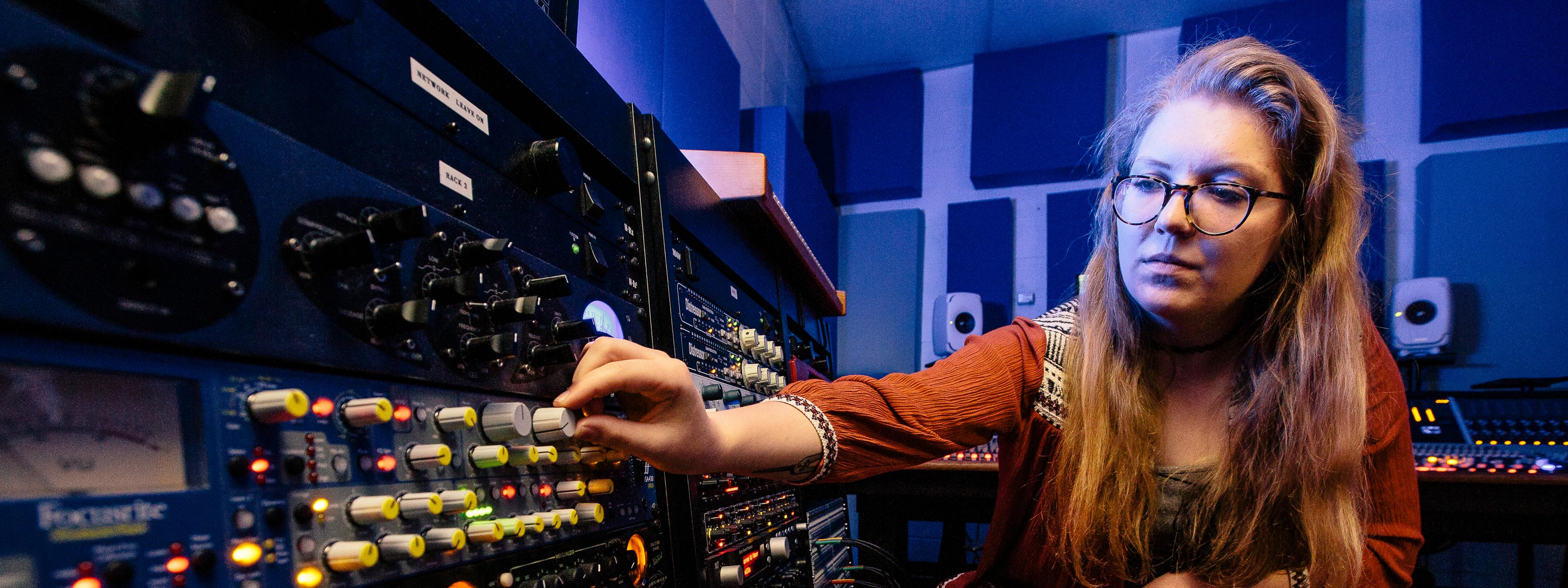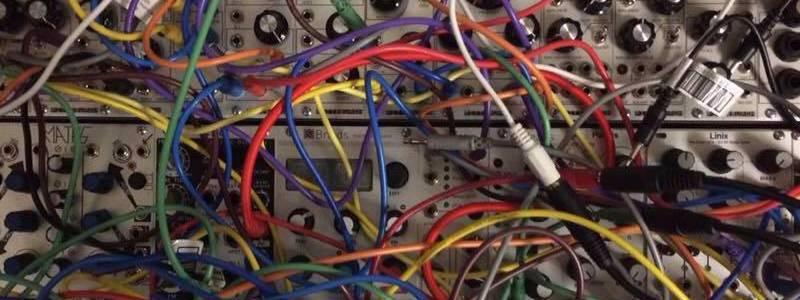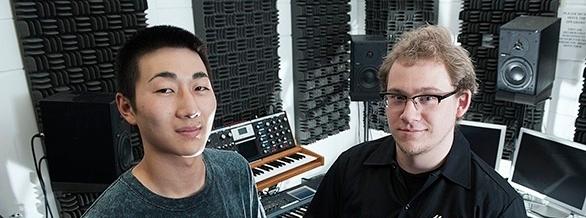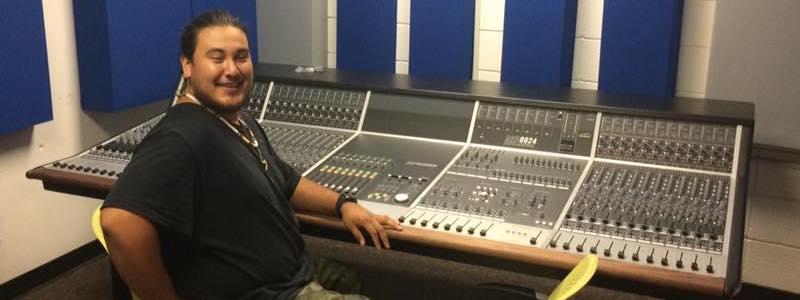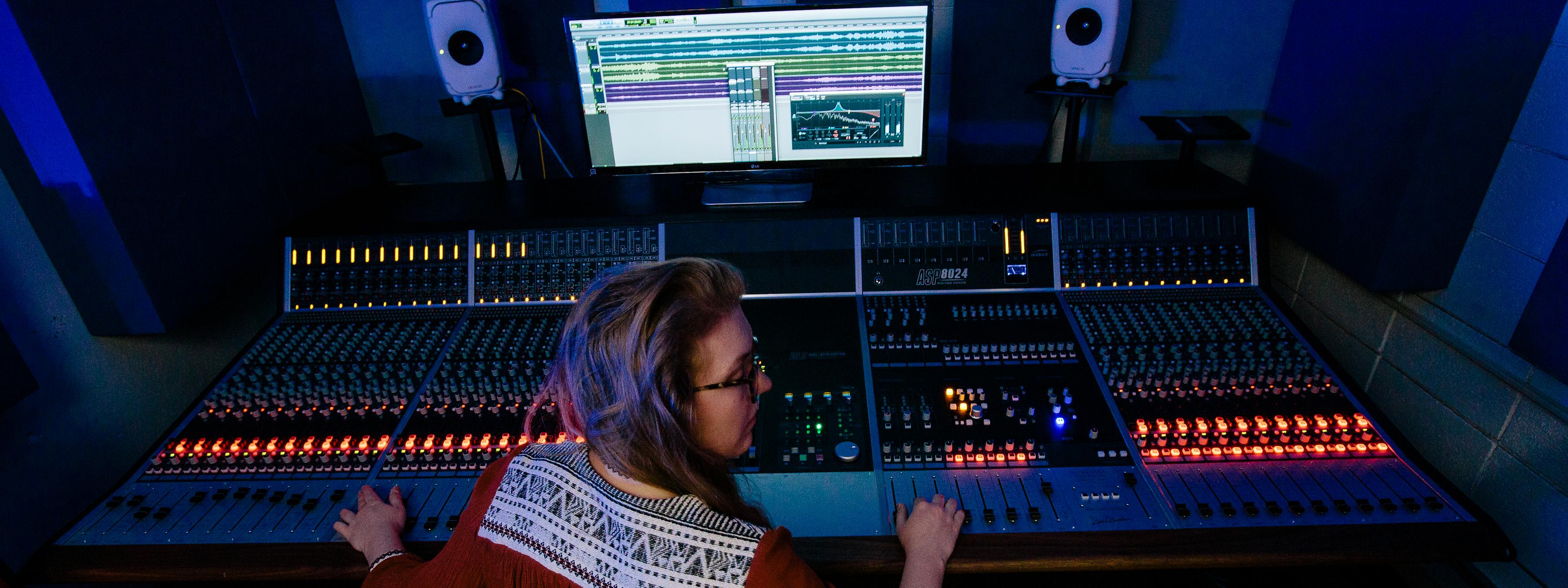Music Technology
The Bachelor of Arts in Music Technology is a synthesis of traditional musical training and application through new technologies. Students develop skills in areas including music composition and theory, recording, sound synthesis, sound design for film and theater, audio for film/video and multimedia, film scoring, notation and sequencing, orchestration, interdisciplinary collaboration, music business, and instrumental/vocal performance. Working alongside faculty, Music Technology majors compose original music and collaborate on artistic works and projects with students from across campus. This combination of academic study, creative work, community involvement, and hands-on training produces well-rounded musicians and digital media artists.
In addition to being award-winning composers and audio engineers, the Music Technology faculty and staff are dedicated and engaging educators. Their professional experience ranges from electronic and classical music composition for the concert hall and media to audio engineering for studio recording, broadcast, and live sound reinforcement.
Program Learning Outcomes
| 1. | The ability to hear, identify, and work conceptually with the elements of music such as rhythm, melody, harmony, and form. |
| 2. | An understanding of and the ability to read, interpret, and perform musical notation in a variety of musical styles. |
| 3. | An understanding of compositional processes, aesthetic properties of style, and the ways these shape and are shaped by artistic and cultural forces. |
| 4. | An acquaintance with a wide selection of musical literature, the principal eras, genres, and cultural sources. |
| 5. | The ability to develop, express, and defend musical judgments. |
| 6. | Experience composing and arranging (orchestrating) music in a variety of styles; using an array of software and hardware tools. |
| 7. | Experience creating soundtracks for new media. |
| 8. | Theoretical knowledge and practical skills necessary for crafting original audio through sound design, digital signal processing, and synthesis techniques. |
| 9. | Demonstrated competency in recording, editing, and mixing mutli-track audio. |
| 10. | A practical understanding of acoustics, psychoacoustics. |
I don't know of any other program like it in the country. . . . right on target as
to what will be required of composers and other music/visual creative artists as they
enter today's digital world workplace.
Guest Composer George S. Clinton, film composer and winner of the BMI Richard Kirk Award for Outstanding Career Achievement
The students use some of the best computer music programs and use them in sophisticated
ways to make the beautiful and interesting pieces which I enjoyed hearing. Learning
to use these programs is not easy. [The] students are very talented. They also must
have excellent courses. I was even more impressed by their music when I learned that
electronic music at the University is less than five years old. The University has
achieved a first class electronic music group in a very short time.
Max V Mathews (1926 - 2011), Professor Emeritus at Stanford University, recipient of the 2010 Stibitz Award for pioneering computer generated music and seminal contributions to digital music technologies & software

